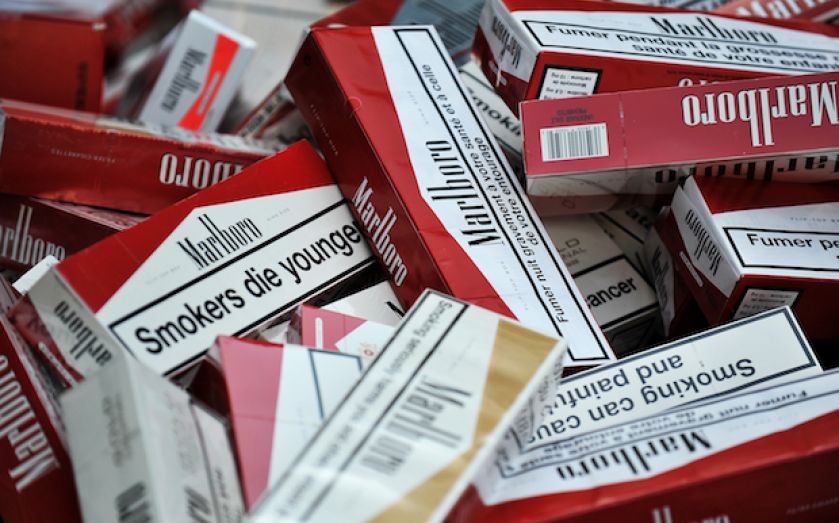Black market cigarettes on the rise after 150pc tax increase since 2010

The consumption of non UK duty paid tobacco (NUKDP) is showing its first increase in recent years as cigarettes have faced a 150 per cent tax rise since the start of 2010.
The amount NUKPD of roll your own (RYO) tobacco has risen to a staggering 48 per cent, while the figure for stick cigarettes has climbed to 16 per cent for the year 2012/13, according to HMRC.
A significant proportion of the increase in NUKDP tobacco has been due to the rise of black market activity.
Research has also found a growing problem with counterfeit hand rolled tobacco (HRT). In 2012, counterfeit HRT made up 10 per cent of NUKPD packs collected by Japan Tobacco International (JTI) in the company's pack swaps survey.
Furthermore, 41 out 52 of illegal Amber Leaf packs bought in a test purchase exercise in 2012, were found to be counterfeit. UK law enforcement has commented on the rise of fake HRT.
"More recently there has been a trend towards importing raw HRT independently of counterfeit packaging. This is done in order to try and evade law enforcement agencies", said the Organised Crime Task force in June 2013.
Incentives for black market smugglers remain incredibly strong, with tax making up 90 per cent of the price of a packet of UK cigarettes and close to 10m adults still choosing to smoke.
The scope for black market activity may increase further still as a result of the EU tobacco products directive. The measures ban flavoured cigarettes, such as menthols, as well as certain pack types like those which contain only 10 cigarettes.
The size of RYO packaging will also be restricted to minimum of 30 grams. However, only eight per cent of RYO packs sold in 2013 were above the soon to be minimum pack size. 10 packs on the other hand, accounted for 38 per cent of all transactions last year.
The industry fears that the restrictions of some of the most popular tobacco products will lead to yet another upsurge in illegal smuggling, undermining legitimate retailers. In total 45 per cent of the market is set to be impacted by the Tobacco products directive.
